Facciam la pace, caro bene mio
Anonymous
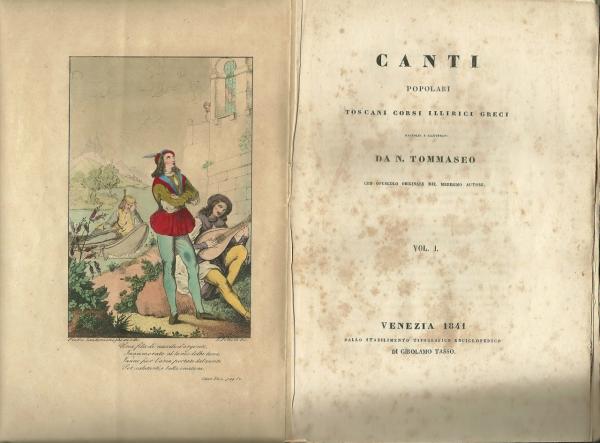
[XIX° secolo]
La prima di nove strofette popolari toscane su La Pace, in "Canti popolari toscani, corsi, illirici, greci, raccolti ed illustrati da Niccolò Tommaseo", Venezia, 1841.
Di anonimo toscano del XIX° secolo, come il nostro del XX° potrà confermare...
La prima di nove strofette popolari toscane su La Pace, in "Canti popolari toscani, corsi, illirici, greci, raccolti ed illustrati da Niccolò Tommaseo", Venezia, 1841.
Di anonimo toscano del XIX° secolo, come il nostro del XX° potrà confermare...
Facciam la pace, caro bene mio,
(Continues)
(Continues)
Contributed by Bernart Bartleby 2018/1/9 - 20:06
Song Itineraries:
Anti War Love Songs
È stata tua la colpa
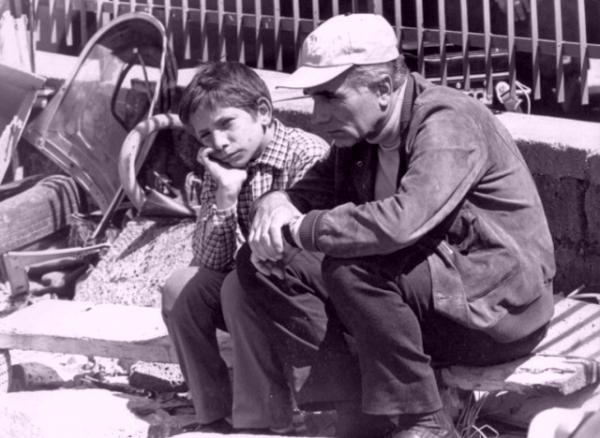
Chanson italienne – È stata tua la colpa – Edoardo Bennato – 1977
Texte et musique : Edoardo Bennato
« Cette chanson ouvrait l’album « Marionnette sans fil » de 1977 ; c’est une relecture de l’histoire de Pinocchio. La guerre a toujours été une des cibles préférées de l’ironie de Bennato, précédée probablement seulement par l’école (on en vient à se demander quelle expérience scolaire terrible doit avoir connue le pauvre Edoardo…) » [Lorenzo Masetti, 24 janvier 2005]
Dialogue maïeutique
Marco Valdo M.I. mon ami, qu’as-tu encore été trouver là comme chanson ? J’espère qu’elle ne m’est pas destinée.
J’ai l’impression, Lucien l’âne mon ami, que tu te sens visé. Ferais-tu, comme les grands du monde, une crise de paranoïa ? Je t’assure qu’il n’en est rien. D’abord, c’est la version française d’une chanson italienne d’il y a quarante ans, où il n’est nullement question d’un âne. Ensuite,... (Continues)
Texte et musique : Edoardo Bennato
« Cette chanson ouvrait l’album « Marionnette sans fil » de 1977 ; c’est une relecture de l’histoire de Pinocchio. La guerre a toujours été une des cibles préférées de l’ironie de Bennato, précédée probablement seulement par l’école (on en vient à se demander quelle expérience scolaire terrible doit avoir connue le pauvre Edoardo…) » [Lorenzo Masetti, 24 janvier 2005]
Dialogue maïeutique
Marco Valdo M.I. mon ami, qu’as-tu encore été trouver là comme chanson ? J’espère qu’elle ne m’est pas destinée.
J’ai l’impression, Lucien l’âne mon ami, que tu te sens visé. Ferais-tu, comme les grands du monde, une crise de paranoïa ? Je t’assure qu’il n’en est rien. D’abord, c’est la version française d’une chanson italienne d’il y a quarante ans, où il n’est nullement question d’un âne. Ensuite,... (Continues)
C’EST TA FAUTE
(Continues)
(Continues)
Contributed by Marco Valdo M.I. 2018/1/8 - 23:31
Դլե յաման

Cerco disperatamente lo spartito di questo meraviglioso brano. Lo trovo incredibilmente commovente... Vorrei tanto cantarlo come un mantra, un canto mistico che porti pace oltre la sofferenza.. chi può aiutarmi?
Tiziana Portoghese 2018/1/8 - 22:34
E lucevan le stelle
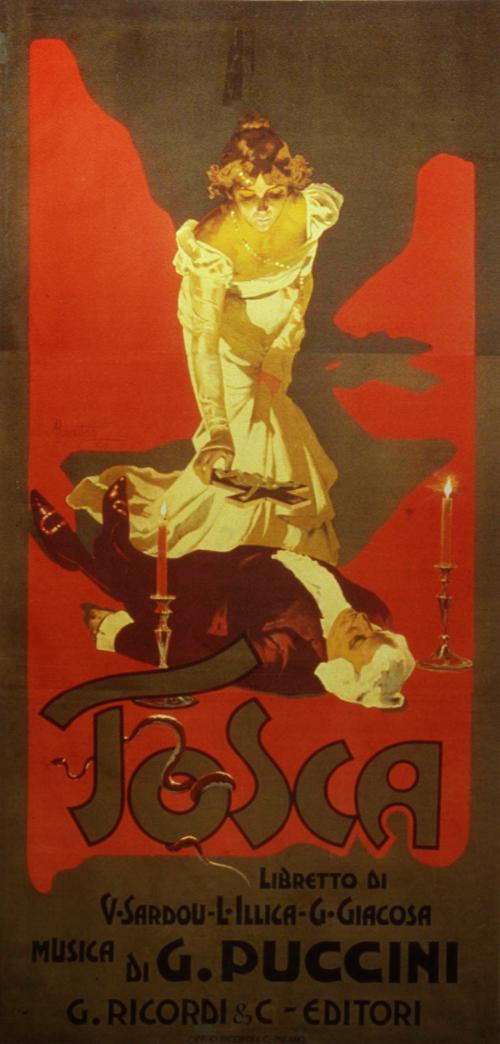
[1899/1900]
Dall'opera Tosca, Atto III
Libretto di Luigi Illica e Giuseppe Giacosa
Musica di Giacomo Puccini
Dal dramma Tosca [1887] di Victorien Sardou
Prima esecuzione: Teatro Costanzi, Roma, 14 gennaio 1900
Tenore: Emilio De Marchi
Le opere liriche, non di rado, si basano su vicende nelle quali tragiche storie d'amore si intrecciano ad avvenimenti storici; tra di esse, probabilmente, la Tosca di Giacomo Puccini è tra quelle più note e pertinenti.
La Tosca pucciniana, su libretto di Giuseppe Giacosa e di Luigi Illica (piacentino di Castell'Arquato, a poca distanza da dove sto scrivendo adesso), fu rappresentata per la prima volta al Teatro Costanzi di Roma il 14 gennaio 1900. Inizialmente non fu accolta in modo troppo favorevole, ma nel giro di due o tre anni faceva già parte in pianta stabile del più importante repertorio lirico internazionale. Alla prima, si narra, accaddero... (Continues)
Dall'opera Tosca, Atto III
Libretto di Luigi Illica e Giuseppe Giacosa
Musica di Giacomo Puccini
Dal dramma Tosca [1887] di Victorien Sardou
Prima esecuzione: Teatro Costanzi, Roma, 14 gennaio 1900
Tenore: Emilio De Marchi
Le opere liriche, non di rado, si basano su vicende nelle quali tragiche storie d'amore si intrecciano ad avvenimenti storici; tra di esse, probabilmente, la Tosca di Giacomo Puccini è tra quelle più note e pertinenti.
La Tosca pucciniana, su libretto di Giuseppe Giacosa e di Luigi Illica (piacentino di Castell'Arquato, a poca distanza da dove sto scrivendo adesso), fu rappresentata per la prima volta al Teatro Costanzi di Roma il 14 gennaio 1900. Inizialmente non fu accolta in modo troppo favorevole, ma nel giro di due o tre anni faceva già parte in pianta stabile del più importante repertorio lirico internazionale. Alla prima, si narra, accaddero... (Continues)
E lucevan le stelle,
(Continues)
(Continues)
Contributed by Riccardo Venturi 2018/1/8 - 19:56
Song Itineraries:
Anti-war classical music , Antiwar Anticlerical, Death penalty: murder by the power
C'est à coups de canon qu'on rend le peuple heureux

Poème de Victor Hugo du recueil : Les quatre vents de l'esprit
Musique et interprétation : L'invité de trop
Musique et interprétation : L'invité de trop
C'est à coups de canon qu'on rend le peuple heureux.
(Continues)
(Continues)
Contributed by JJ 2018/1/8 - 15:40
The Hungry Army
Anonymous
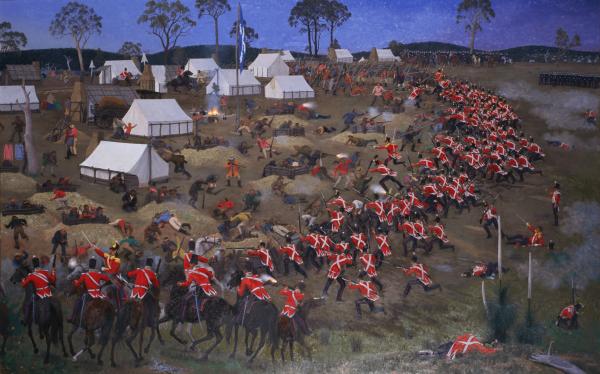
[metà 800?]
Nella seconda strofa di questa curiosa “Barrack Song” c’è un riferimento geografico preciso, quello a Ballarat, località nello Stato australiano di Victoria. Per il resto, la canzone potrebbe avere anche un’altra origine (e infatti con lo stesso titolo esiste almeno un’altra ballata, questa volta irlandese, ambientata durante la guerra di Crimea) ed essere stata adattata in Australia quando a metà 800, durante la grande corsa all’oro, le truppe coloniali furono frequentemente impegnate per reprimere i disordini causati dai cercatori che rifiutavano il pagamento delle tasse governative. Celebre la “Eureka Stockade” (decine di morti) che ebbe luogo proprio a Ballarat nel 1854.
Nella seconda strofa di questa curiosa “Barrack Song” c’è un riferimento geografico preciso, quello a Ballarat, località nello Stato australiano di Victoria. Per il resto, la canzone potrebbe avere anche un’altra origine (e infatti con lo stesso titolo esiste almeno un’altra ballata, questa volta irlandese, ambientata durante la guerra di Crimea) ed essere stata adattata in Australia quando a metà 800, durante la grande corsa all’oro, le truppe coloniali furono frequentemente impegnate per reprimere i disordini causati dai cercatori che rifiutavano il pagamento delle tasse governative. Celebre la “Eureka Stockade” (decine di morti) che ebbe luogo proprio a Ballarat nel 1854.
When I was young and in me prime
(Continues)
(Continues)
Contributed by Bernart Bartleby 2018/1/8 - 08:53
The Menin Road
Anonymous
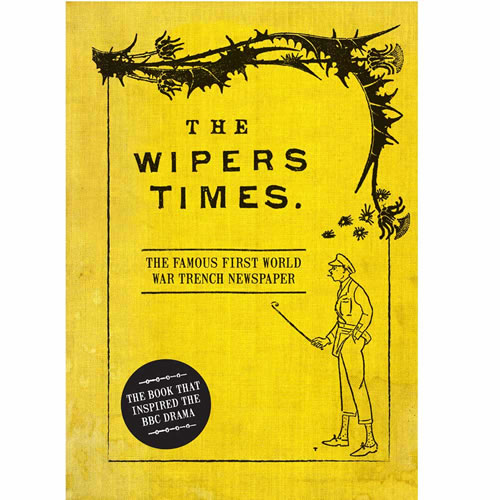
[1917]
Una poesia-canzone attribuita ad un anonimo ufficiale medico inglese di stanza al pronto soccorso da campo sulla strada tra Menen (Menin, in francese) e Ypres, nelle Fiandre occidentali.
Pubblicata sul "Wipers Times" (poi "B.E.F. Times"), giornale di trincea del British Expeditionary Force edito tra il 1916 e la fine della guerra tra le fila del 12° battaglione di fanteria The Sherwood Foresters.
Wipers era ovviamente la significativa storpiatura inglese per Ypres...
Quello combattuto sulla strada di Menin tra il 20 ed il 25 settembre 1917 fu solo uno dei tanti scontri avvenuti durante la cosiddetta battaglia di Passchendaele (o terza battaglia di Ypres), nel corso della quale, tra il 31 luglio ed il 6 novembre 1917, persero la vita non meno di mezzo milione di soldati, 500.000 uomini.
Una poesia-canzone attribuita ad un anonimo ufficiale medico inglese di stanza al pronto soccorso da campo sulla strada tra Menen (Menin, in francese) e Ypres, nelle Fiandre occidentali.
Pubblicata sul "Wipers Times" (poi "B.E.F. Times"), giornale di trincea del British Expeditionary Force edito tra il 1916 e la fine della guerra tra le fila del 12° battaglione di fanteria The Sherwood Foresters.
Wipers era ovviamente la significativa storpiatura inglese per Ypres...
Quello combattuto sulla strada di Menin tra il 20 ed il 25 settembre 1917 fu solo uno dei tanti scontri avvenuti durante la cosiddetta battaglia di Passchendaele (o terza battaglia di Ypres), nel corso della quale, tra il 31 luglio ed il 6 novembre 1917, persero la vita non meno di mezzo milione di soldati, 500.000 uomini.
There are many roads in Flanders, where the horses slide and fall,
(Continues)
(Continues)
Contributed by Bernart Bartleby 2018/1/7 - 22:31
Song Itineraries:
World War I (1914-1918)
The Circle (Song for Layla Al-Attar and los Olvidados)
Traduzione spagnola da Youtube (sotto la versione di Marta Gomez)

¿Quién mató a esta mujer a este artista esta madre?
(Continues)
(Continues)
2018/1/7 - 11:40
Scomposizione e tariffario di Giulio Regeni, ricercatore

Versi del poeta americano Anthony Evan Hecht (1923-2004), nella raccolta "The Darkness and the Light", pubblicata nel 2001
THE CEREMONY OF INNOCENCE
He was taken from his cell, stripped, blindfolded
And marched to a noisy room that smelled of sweat.
Someone stamped on his toes; his scream was stopped
By a lemon violently pushed between his teeth
And sealed with friction tape behind his head.
His arms were tied, the blindfold was removed
So he could see his tormentors, and they could see
The so-much-longed-for terror in his eyes.
And one of them said, "The best part of it all
Is that you won't even be able to pray."
When they were done with him, two hours later,
They learned that they had murdered the wrong man.
And this made one of them thoughtful. Some years after,
He quietly severed connections with the others,
Moved to a different city, took holy orders
And devoted himself... (Continues)
THE CEREMONY OF INNOCENCE
He was taken from his cell, stripped, blindfolded
And marched to a noisy room that smelled of sweat.
Someone stamped on his toes; his scream was stopped
By a lemon violently pushed between his teeth
And sealed with friction tape behind his head.
His arms were tied, the blindfold was removed
So he could see his tormentors, and they could see
The so-much-longed-for terror in his eyes.
And one of them said, "The best part of it all
Is that you won't even be able to pray."
When they were done with him, two hours later,
They learned that they had murdered the wrong man.
And this made one of them thoughtful. Some years after,
He quietly severed connections with the others,
Moved to a different city, took holy orders
And devoted himself... (Continues)
Bernart Bartleby 2018/1/6 - 23:02
The Beautiful People

[1994]
Scritta da Jeordie Osborne White, in arte Twiggy Ramirez, e Brian Hugh Warner, in arte Marilyn Manson
Nell'album "Antichrist Superstar" del 1996
Ora che il povero Marilyn Manson è rimasto pure orfano di padre, giacchè quel mostro di Charles Manson se n'è andato all'inferno nel novembre scorso, mi spiaceva non ci fosse una sua canzone sulle CCG/AWS. Scelgo questa, tratta dall'album che ha consacrato l'inquietante cantautore statunitense (e forse anche l'unico suo davvero degno di nota), non perchè sia un amante del genere ma perchè mi pare pertinente questa violentissima invettiva contro la "bella gente" e l'orribile società che ha creato, feroce e ingiusta, fatta di padroni e di schiavi che sembrano incapaci di ribellarsi costruttivamente e che, semmai, nella loro cieca rabbia non sanno far altro che invocare l'"uomo forte", l'ordine, e scagliarsi contro quelli ancor più disperati... (Continues)
Scritta da Jeordie Osborne White, in arte Twiggy Ramirez, e Brian Hugh Warner, in arte Marilyn Manson
Nell'album "Antichrist Superstar" del 1996
Ora che il povero Marilyn Manson è rimasto pure orfano di padre, giacchè quel mostro di Charles Manson se n'è andato all'inferno nel novembre scorso, mi spiaceva non ci fosse una sua canzone sulle CCG/AWS. Scelgo questa, tratta dall'album che ha consacrato l'inquietante cantautore statunitense (e forse anche l'unico suo davvero degno di nota), non perchè sia un amante del genere ma perchè mi pare pertinente questa violentissima invettiva contro la "bella gente" e l'orribile società che ha creato, feroce e ingiusta, fatta di padroni e di schiavi che sembrano incapaci di ribellarsi costruttivamente e che, semmai, nella loro cieca rabbia non sanno far altro che invocare l'"uomo forte", l'ordine, e scagliarsi contro quelli ancor più disperati... (Continues)
And I don't want you and I don't need you
(Continues)
(Continues)
Contributed by Bernart Bartleby 2018/1/6 - 21:08
Supper's Ready

Non posso esimermi dal ringraziare l'autore di questo gran lavoro di traduzione. Sono nato nel 1958 e gli anni 70 sono stati dominati da quella che allora chiamavamo popmusic (ribattezata rock progressivo). Il periodo dal 1970 al 1975 è stato musicalmente quello con la migliore formazione dei GENESIS i quali hanno conquistato tutti gli appassionati per quel loro tipo di musica e i testi magici di Gabriel.
A distanza di anni i loro brani rimangono sempre affascinanti e conoscere sfumature dei loro testi ancora oggi aiuta a capirli.
Che bello sentire le opinioni di tanti fans!
A distanza di anni i loro brani rimangono sempre affascinanti e conoscere sfumature dei loro testi ancora oggi aiuta a capirli.
Che bello sentire le opinioni di tanti fans!
giannitumino 2018/1/6 - 19:24
Nad ranem śmierć się śmieje

LA MORTE RIDE VERSO LA MATTINA
(Continues)
(Continues)
Contributed by Krzysiek 2018/1/5 - 22:44
Mangiafuoco
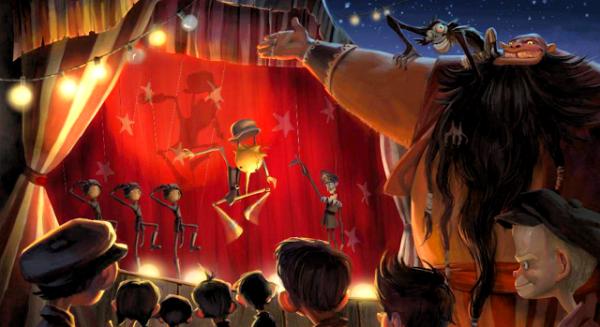
Chanson italienne – Mangiafuoco – Edoardo Bennato – 1977
Texte et musique : Edoardo Bennato
Quel nom étrange, tu as donné au personnage de la chanson, dit Lucien l’âne. A-t-on idée de nommer quelqu’un Pyrophage ou Mangefeu. Je ne sais lequel est le plus troublant. Il est vrai que pour moi, c’est le même mot.
Oh, dit Marco Valdo M.I., il n’est pas plus étrange que son nom d’origine en italien Mangiafuoco, qui aurait pu être renommé en français tout simplement : « Mangefeu ». Mais le titre lui-même est plus complexe qu’il n’y paraît ; si l’on pense un instant à Pantagruel et Gargantua, deux romans d’Alcofribas Nasier, alias Séraphin Calobarsy, alias François Rabelais, si l’on suit Voltaire, homme intelligent, écrivain et philosophe de haut vol, dans sa manie des titres à rebond comme « Candide ou l’Optimisme » ou « Zadig ou la destinée », ou encore « Le fanatisme ou Mahomet le prophète ».... (Continues)
Texte et musique : Edoardo Bennato
Quel nom étrange, tu as donné au personnage de la chanson, dit Lucien l’âne. A-t-on idée de nommer quelqu’un Pyrophage ou Mangefeu. Je ne sais lequel est le plus troublant. Il est vrai que pour moi, c’est le même mot.
Oh, dit Marco Valdo M.I., il n’est pas plus étrange que son nom d’origine en italien Mangiafuoco, qui aurait pu être renommé en français tout simplement : « Mangefeu ». Mais le titre lui-même est plus complexe qu’il n’y paraît ; si l’on pense un instant à Pantagruel et Gargantua, deux romans d’Alcofribas Nasier, alias Séraphin Calobarsy, alias François Rabelais, si l’on suit Voltaire, homme intelligent, écrivain et philosophe de haut vol, dans sa manie des titres à rebond comme « Candide ou l’Optimisme » ou « Zadig ou la destinée », ou encore « Le fanatisme ou Mahomet le prophète ».... (Continues)
PYROPHAGE OU MANGEFEU, LE MANGEUR DE FEU
(Continues)
(Continues)
Contributed by Marco Valdo M.I. 2018/1/5 - 20:03
No More Boomerang
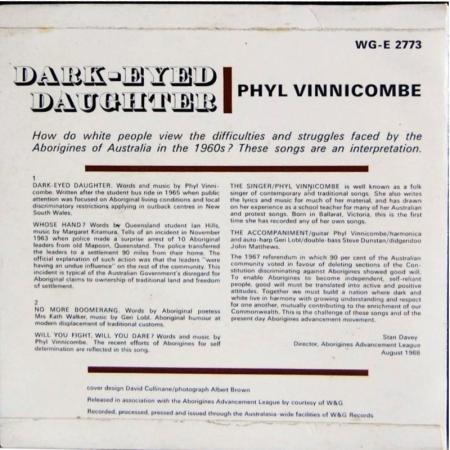
1968
Dark-eyed daughter
Pubblicato con il nome Phyl Vinnicombe (Lobl è il cognome da sposata)
Words: Walker (Noonuccal)
Tune: Lobl
'The 1967 referendum in which 90% of the Australian Community voted in favour of deleting sections of the Constitution discriminating against Aborigines showed goodwill. To enable Aborigines to become independent, self-reliant people this goodwill must be translated into active and positive attitudes. Together we must build a nation where dark and white live in harmony with growing understanding and respect for one another, mutually contributing to the enrichment of our Commonwealth. This is the challenge of these songs and of the present day Aboriginal advancement movement.'
This is still the challenge but now many aboriginal people show us the value of their culture, they show us the meaning of resilience, they show us the way ahead, they show us how... (Continues)
Dark-eyed daughter
Pubblicato con il nome Phyl Vinnicombe (Lobl è il cognome da sposata)
Words: Walker (Noonuccal)
Tune: Lobl
'The 1967 referendum in which 90% of the Australian Community voted in favour of deleting sections of the Constitution discriminating against Aborigines showed goodwill. To enable Aborigines to become independent, self-reliant people this goodwill must be translated into active and positive attitudes. Together we must build a nation where dark and white live in harmony with growing understanding and respect for one another, mutually contributing to the enrichment of our Commonwealth. This is the challenge of these songs and of the present day Aboriginal advancement movement.'
This is still the challenge but now many aboriginal people show us the value of their culture, they show us the meaning of resilience, they show us the way ahead, they show us how... (Continues)
No more boomerang no more spear,
(Continues)
(Continues)
Contributed by Dq82 2018/1/5 - 13:28
Dark-Eyed Daughter

1968
Dark-eyed daughter
Pubblicato con il nome Phyl Vinnicombe (Lobl è il cognome da sposata)
'The 1967 referendum in which 90% of the Australian Community voted in favour of deleting sections of the Constitution discriminating against Aborigines showed goodwill. To enable Aborigines to become independent, self-reliant people this goodwill must be translated into active and positive attitudes. Together we must build a nation where dark and white live in harmony with growing understanding and respect for one another, mutually contributing to the enrichment of our Commonwealth. This is the challenge of these songs and of the present day Aboriginal advancement movement.'
This is still the challenge but now many aboriginal people show us the value of their culture, they show us the meaning of resilience, they show us the way ahead, they show us how to forgive, they show us their worth.
However... (Continues)
Dark-eyed daughter
Pubblicato con il nome Phyl Vinnicombe (Lobl è il cognome da sposata)
'The 1967 referendum in which 90% of the Australian Community voted in favour of deleting sections of the Constitution discriminating against Aborigines showed goodwill. To enable Aborigines to become independent, self-reliant people this goodwill must be translated into active and positive attitudes. Together we must build a nation where dark and white live in harmony with growing understanding and respect for one another, mutually contributing to the enrichment of our Commonwealth. This is the challenge of these songs and of the present day Aboriginal advancement movement.'
This is still the challenge but now many aboriginal people show us the value of their culture, they show us the meaning of resilience, they show us the way ahead, they show us how to forgive, they show us their worth.
However... (Continues)
Mother may I go out to swim?
(Continues)
(Continues)
Contributed by Dq82 2018/1/5 - 11:56
Oncle Archibald

Bellissima la versione piemontese del Maestro Amodei, così come quella italiana del grande Salvo Lo Galbo, millanta volte superiore per metrica e cantabilità all'altra versione italiana che, pur piú aderente alla lettera dell'originale, risulta assolutamente impossibile da cantare.
2018/1/4 - 19:31
The Green Fields of England
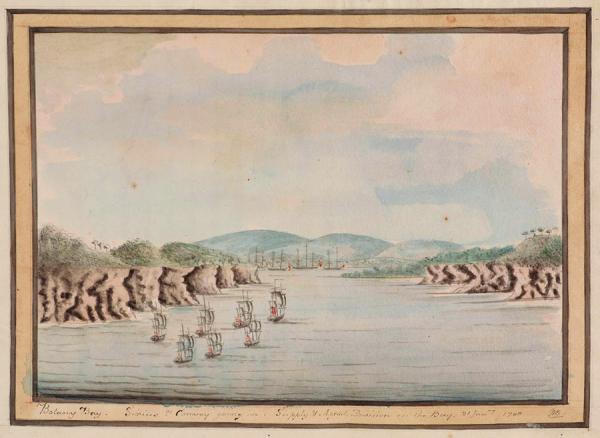
1977
The Transports
This unique project relates the true story of Henry Cabell and Susannah Holmes, convicts transported to Australia on the “First Fleet” in 1787 and the trials and tribulations which culminated in that historic voyage. The tale is presented as a cycle of new compositions in the idiom of traditional English folk song, linked by narrative passages in the style and to the melodies of broadsheet ballads of the time. The orchestral passages and arrangements for the accompanied songs have been conveived in such a way as to underline the overall feeling of “period” and the instruments used are those likely to have been heard in the church bands or “quires” of East Anglian villages in those days. The singers have been chosen from the front rank of the English folk song revival, and the melodies composed to suit their individual style. A detailed account of the historical background... (Continues)
The Transports
This unique project relates the true story of Henry Cabell and Susannah Holmes, convicts transported to Australia on the “First Fleet” in 1787 and the trials and tribulations which culminated in that historic voyage. The tale is presented as a cycle of new compositions in the idiom of traditional English folk song, linked by narrative passages in the style and to the melodies of broadsheet ballads of the time. The orchestral passages and arrangements for the accompanied songs have been conveived in such a way as to underline the overall feeling of “period” and the instruments used are those likely to have been heard in the church bands or “quires” of East Anglian villages in those days. The singers have been chosen from the front rank of the English folk song revival, and the melodies composed to suit their individual style. A detailed account of the historical background... (Continues)
Farewell to our lovers and our kind relations,
(Continues)
(Continues)
Contributed by Dq82 2018/1/4 - 15:16
The Humane Turnkey

1977
The Transports
This unique project relates the true story of Henry Cabell and Susannah Holmes, convicts transported to Australia on the “First Fleet” in 1787 and the trials and tribulations which culminated in that historic voyage. The tale is presented as a cycle of new compositions in the idiom of traditional English folk song, linked by narrative passages in the style and to the melodies of broadsheet ballads of the time. The orchestral passages and arrangements for the accompanied songs have been conveived in such a way as to underline the overall feeling of “period” and the instruments used are those likely to have been heard in the church bands or “quires” of East Anglian villages in those days. The singers have been chosen from the front rank of the English folk song revival, and the melodies composed to suit their individual style. A detailed account of the historical background... (Continues)
The Transports
This unique project relates the true story of Henry Cabell and Susannah Holmes, convicts transported to Australia on the “First Fleet” in 1787 and the trials and tribulations which culminated in that historic voyage. The tale is presented as a cycle of new compositions in the idiom of traditional English folk song, linked by narrative passages in the style and to the melodies of broadsheet ballads of the time. The orchestral passages and arrangements for the accompanied songs have been conveived in such a way as to underline the overall feeling of “period” and the instruments used are those likely to have been heard in the church bands or “quires” of East Anglian villages in those days. The singers have been chosen from the front rank of the English folk song revival, and the melodies composed to suit their individual style. A detailed account of the historical background... (Continues)
Part 1
(Continues)
(Continues)
Contributed by Dq82 2018/1/4 - 15:08
Juarez, Mexico
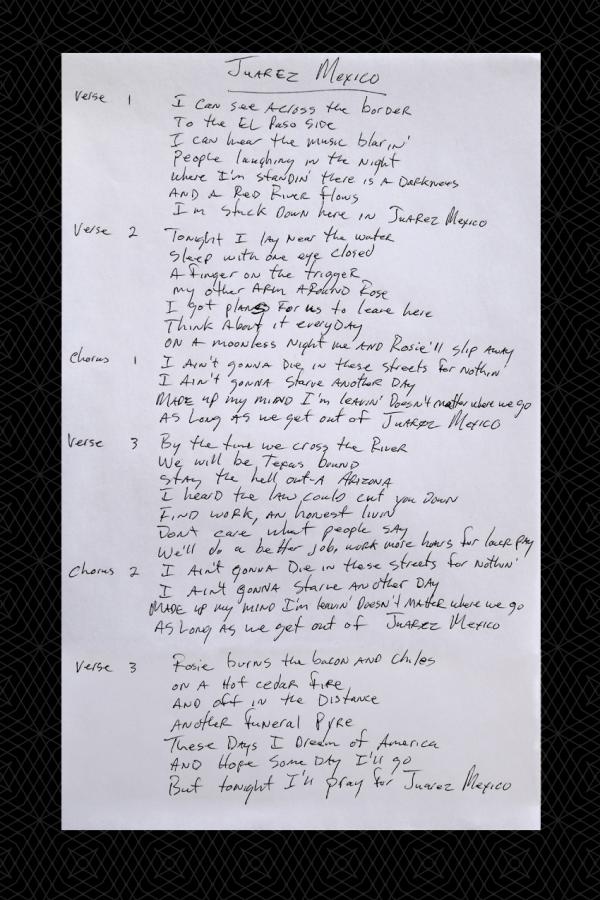
2013
Thom Chacon
Ciudad Juarez è una città messicana, al confine con gli Stati Uniti, da cui è separata dal Rio Grande (dall'altra parte del fiume vi è El Paso, una volta erano un'unica città), una delle città più malfamate del mondo, per anni con il più alto tasso di omicidi procapite al mondo. I cartelli criminali contrabbandano droga e, ovviamente, clandestini, negli Stati Uniti. Negli ultimi 15 anni, la città ha perso quasi il 20% della popolazione, esasperata dalla violenza del luogo e allettata da un futuro migliore al di là del fiume.
Ciudad Juarez è tristemente nota anche per i numerosissimi femminicidi, particolarmente giovani ragazze, che lavorano nelle maquilladoras che producono beni per gli USA. Jennifer Lopez produsse anche un film, Bordertown (2007), in cui lei interpreta una giornalista che indaga su tutte queste morti.
Once I was driving east on Interstate 10 and I went... (Continues)
Thom Chacon
Ciudad Juarez è una città messicana, al confine con gli Stati Uniti, da cui è separata dal Rio Grande (dall'altra parte del fiume vi è El Paso, una volta erano un'unica città), una delle città più malfamate del mondo, per anni con il più alto tasso di omicidi procapite al mondo. I cartelli criminali contrabbandano droga e, ovviamente, clandestini, negli Stati Uniti. Negli ultimi 15 anni, la città ha perso quasi il 20% della popolazione, esasperata dalla violenza del luogo e allettata da un futuro migliore al di là del fiume.
Ciudad Juarez è tristemente nota anche per i numerosissimi femminicidi, particolarmente giovani ragazze, che lavorano nelle maquilladoras che producono beni per gli USA. Jennifer Lopez produsse anche un film, Bordertown (2007), in cui lei interpreta una giornalista che indaga su tutte queste morti.
Once I was driving east on Interstate 10 and I went... (Continues)
I can see across the border
(Continues)
(Continues)
Contributed by Dq82 2018/1/4 - 13:09
Song Itineraries:
The War of Labour: Emigration, Immigration, Exploitation, Slavery
Il Golico

the third man seated from the left is TOMASINO MIANI , soldier of the 8th Cividale Regiment , Btg Cividale .
On 18th March 1941 for resistence in front of enemy was awarded of the Silver Medal .
On 18th March 1941 for resistence in front of enemy was awarded of the Silver Medal .
Tomasino Giorgio 2018/1/4 - 13:01
Tu grillo parlante
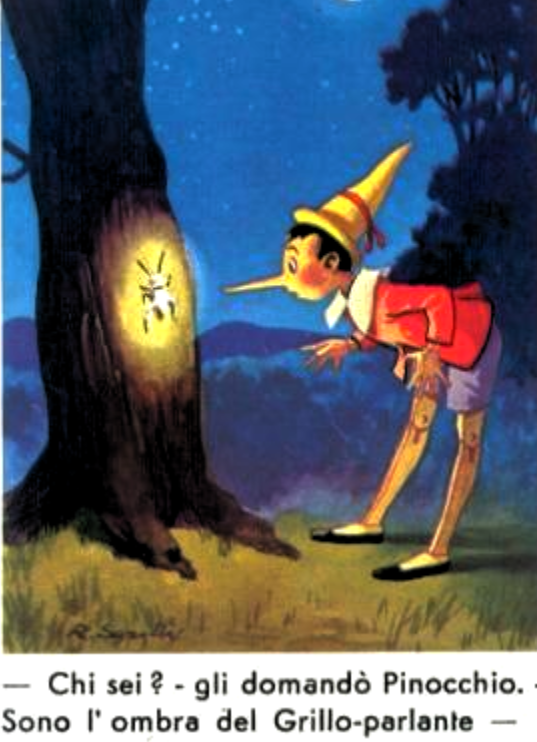
Chanson italienne – Tu grillo parlante – Edoardo Bennato – 1977
Texte et musique : Edoardo Bennato
Voici, Lucien l’âne mon ami, encore une chanson d’Edoardo Bennato relative à l’histoire de la Marionnette dans fil, alias Pinocchio.
C’est une bonne idée, Marco Valdo M.I. mon ami, car l’air de rien, ces « chansons qui ne sont que des chansonnettes » - c’est du moins ainsi qu’en parle Edoardo Bennato lui-même, si mon souvenir est exact- m’ont tout l’air, tout au contraire, d’êtres d’authentiques chansons remplies de vigueur, de verdeur et diablement intéressantes.
De fait, Lucien l’âne mon ami ; si tu te souviens, nous avons déjà présenté ici (et ailleurs) les versions françaises de plusieurs d’entre elles.
Oui, Marco Valdo M.I. mon ami, et si ma mémoire est bonne (tu compléteras si j’en oublie), c’était La Fée, Quand tu seras grand, En Prison, en Prison, Le Renard et le Chat, Docteurs,... (Continues)
Texte et musique : Edoardo Bennato
Voici, Lucien l’âne mon ami, encore une chanson d’Edoardo Bennato relative à l’histoire de la Marionnette dans fil, alias Pinocchio.
C’est une bonne idée, Marco Valdo M.I. mon ami, car l’air de rien, ces « chansons qui ne sont que des chansonnettes » - c’est du moins ainsi qu’en parle Edoardo Bennato lui-même, si mon souvenir est exact- m’ont tout l’air, tout au contraire, d’êtres d’authentiques chansons remplies de vigueur, de verdeur et diablement intéressantes.
De fait, Lucien l’âne mon ami ; si tu te souviens, nous avons déjà présenté ici (et ailleurs) les versions françaises de plusieurs d’entre elles.
Oui, Marco Valdo M.I. mon ami, et si ma mémoire est bonne (tu compléteras si j’en oublie), c’était La Fée, Quand tu seras grand, En Prison, en Prison, Le Renard et le Chat, Docteurs,... (Continues)
LE GRILLON QUI PARLE
(Continues)
(Continues)
Contributed by Marco Valdo M.I. 2018/1/3 - 22:57
Shipbuilding

Una curiosità: la traduzione di "Is it worth it" con "È cosa buona e giusta" è
- la traduzione letterale, "is it worth it" è l'equivalente dell'affermazione "è cosa buona e giusta" durante la messa
- una licenza poetica, al posto del significato originale di "Ne vale la pena?" si è scelto di tradurre con "È cosa buona e giusta"
- altro?
Sono sinceramente curioso :-)
Grazie
Marco
- la traduzione letterale, "is it worth it" è l'equivalente dell'affermazione "è cosa buona e giusta" durante la messa
- una licenza poetica, al posto del significato originale di "Ne vale la pena?" si è scelto di tradurre con "È cosa buona e giusta"
- altro?
Sono sinceramente curioso :-)
Grazie
Marco
Marco 2018/1/3 - 16:01
McCafferty
Anonymous
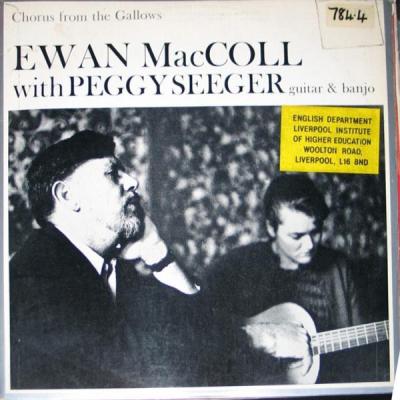
[XIX° secolo]
Una canzone irlandese molto nota – con i titoli di McCafferty, o McCaffery o McKaffery - che trovo nel repertorio di artisti come Dominic Behan, The Spinners, Roy Harris, ma soprattutto Ewan MacColl e The Dubliners
Sulla melodia de The Croppy Boy
Il testo che propongo – quello della versione dei Dubliners – racconta la storia vera di Patrick McCaffery, nato nel 1842 nella contea irlandese di Kildare. Orfano di madre, abbandonato dal padre, Patrick ebbe un'infanzia difficilissima, con il corollario dell'allora inevitabile lavoro precoce in una fabbrica. A 18 anni si arruolò ma, forse per il suo carattere riottoso e insubordinato, forse soltanto perchè irlandese, fu subito accolto male dai suoi diretti superiori. La canzone racconta che gli bastò esitare a compiere l'ordine di identificare dei bambini, figli di militari, che facevano chiasso perchè Patrick McCaffery fosse condannato... (Continues)
Una canzone irlandese molto nota – con i titoli di McCafferty, o McCaffery o McKaffery - che trovo nel repertorio di artisti come Dominic Behan, The Spinners, Roy Harris, ma soprattutto Ewan MacColl e The Dubliners
Sulla melodia de The Croppy Boy
Il testo che propongo – quello della versione dei Dubliners – racconta la storia vera di Patrick McCaffery, nato nel 1842 nella contea irlandese di Kildare. Orfano di madre, abbandonato dal padre, Patrick ebbe un'infanzia difficilissima, con il corollario dell'allora inevitabile lavoro precoce in una fabbrica. A 18 anni si arruolò ma, forse per il suo carattere riottoso e insubordinato, forse soltanto perchè irlandese, fu subito accolto male dai suoi diretti superiori. La canzone racconta che gli bastò esitare a compiere l'ordine di identificare dei bambini, figli di militari, che facevano chiasso perchè Patrick McCaffery fosse condannato... (Continues)
When I was eighteen years of age
(Continues)
(Continues)
Contributed by Bernart Bartleby 2018/1/3 - 13:41
The Light Horse
Anonymous
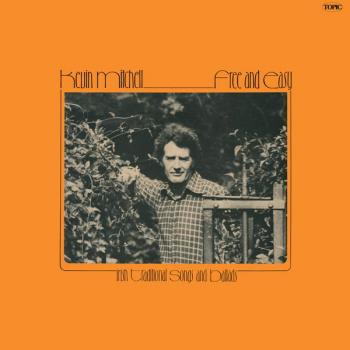
[XIX° secolo, o anche prima]
Una ballata irlandese, un'anti-recruiting song, che sta al n. 3027 delle Bodleian Libraries e che è nota anche con il titolo alternativo de "The Black Horse"
L'interpretazione più nota è quella di Kevin Mitchell, musicista scozzese, nel suo "Free and Easy.
Irish Traditional Songs and Ballads", pubblicato nel 1977.
Testo trovato su Mainly Norfolk: English Folk and Other Good Music
Il soprannome "Black Horse" era quello dato al 7th (The Princess Royal's) Dragoon Guards, reggimento di cavalleria della British Army, quando a metà 700 fu posto sotto conduzione irlandese, integrato nel 4th Regiment of Horse, prendendo parte alla Guerra dei 7 Anni (1756-1763). Per questo penso che la canzone possa essere anche più vecchia delle date riportate sui fogli volanti delle Bodleian Libraries...
Una ballata irlandese, un'anti-recruiting song, che sta al n. 3027 delle Bodleian Libraries e che è nota anche con il titolo alternativo de "The Black Horse"
L'interpretazione più nota è quella di Kevin Mitchell, musicista scozzese, nel suo "Free and Easy.
Irish Traditional Songs and Ballads", pubblicato nel 1977.
Testo trovato su Mainly Norfolk: English Folk and Other Good Music
Il soprannome "Black Horse" era quello dato al 7th (The Princess Royal's) Dragoon Guards, reggimento di cavalleria della British Army, quando a metà 700 fu posto sotto conduzione irlandese, integrato nel 4th Regiment of Horse, prendendo parte alla Guerra dei 7 Anni (1756-1763). Per questo penso che la canzone possa essere anche più vecchia delle date riportate sui fogli volanti delle Bodleian Libraries...
Come all you airy bachelors and be advised by me:
(Continues)
(Continues)
Contributed by Bernart Bartleby 2018/1/3 - 11:05
Song Itineraries:
Traditional English, Scottish and Irish antiwar ballads
×
![]()

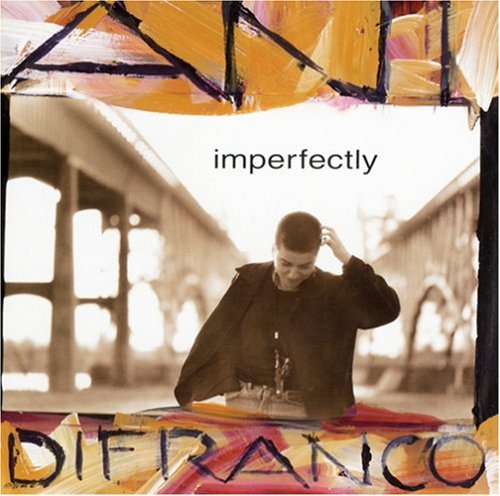


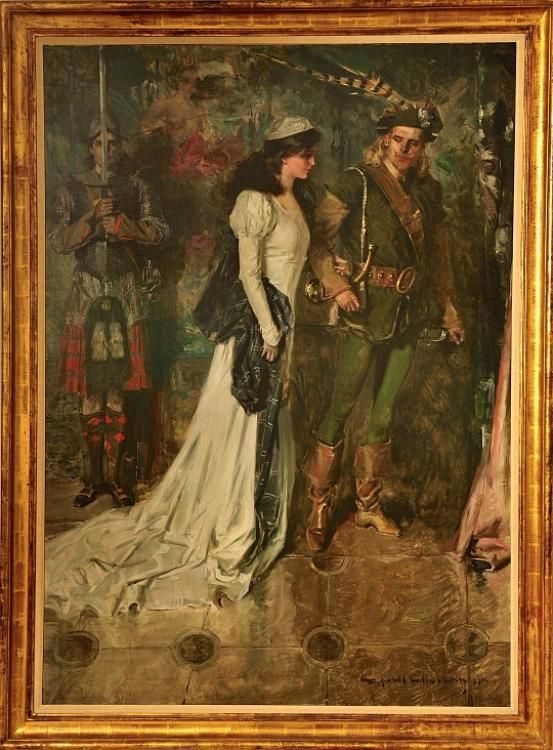
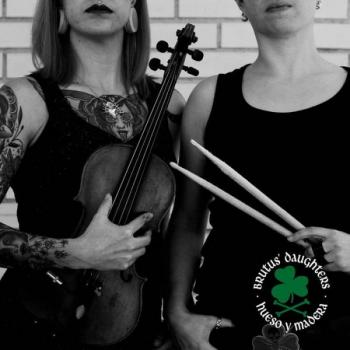
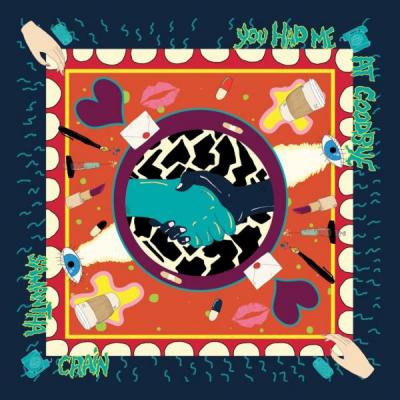

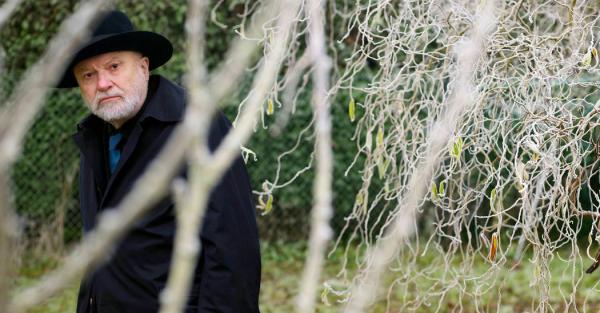



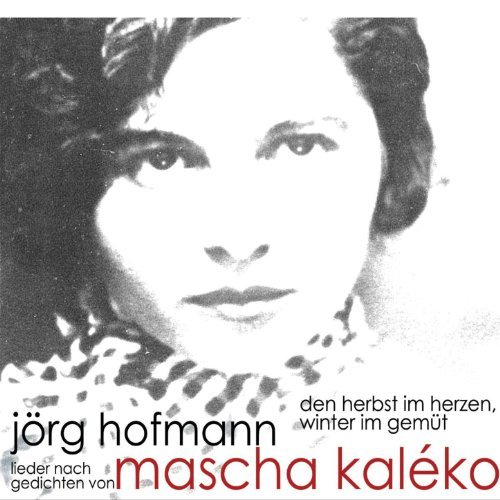




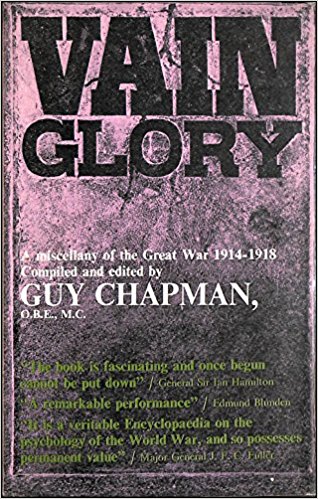

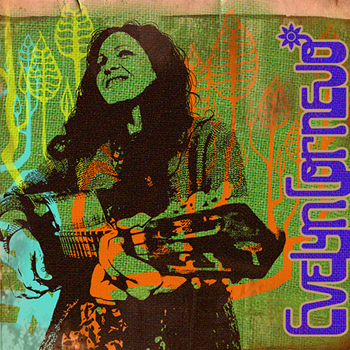
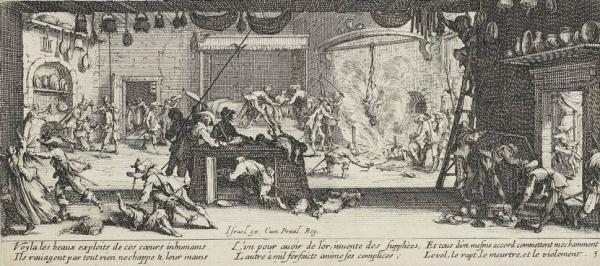
Lyrics and music: Ani DiFranco
Testo e musica: Ani DiFranco
Paroles et musique: Ani DiFranco
Album: Imperfectly
“E’ Natale da fine ottobre. Le lucette si accendono sempre prima, mentre le persone sono sempre più intermittenti. Io vorrei un dicembre a luci spente e con le persone accese.” (Charles Bukowski).
Dicono che dicembre è passato, siamo al nove di gennaio e le lucette si sono spente, così come le persone sono rimaste generalmente spente anche con le lucette accese. Mai come quest'anno ho sentito l'assoluta inconsistenza del divino. Il divino è la più atroce fregatura che ci siamo fabbricati, è l'ignobile carogneria della bontà e l'inqualificabile cattiveria dell'indifferenza biascicata in consumi, in Black Fridays, in indici economici.
Questa cosa mi ha mandato in un assoluto, impenetrabile silenzio.
Gli auguri? Se ce ne fossero veramente da fare, di auguri, dovrebbero... (Continues)